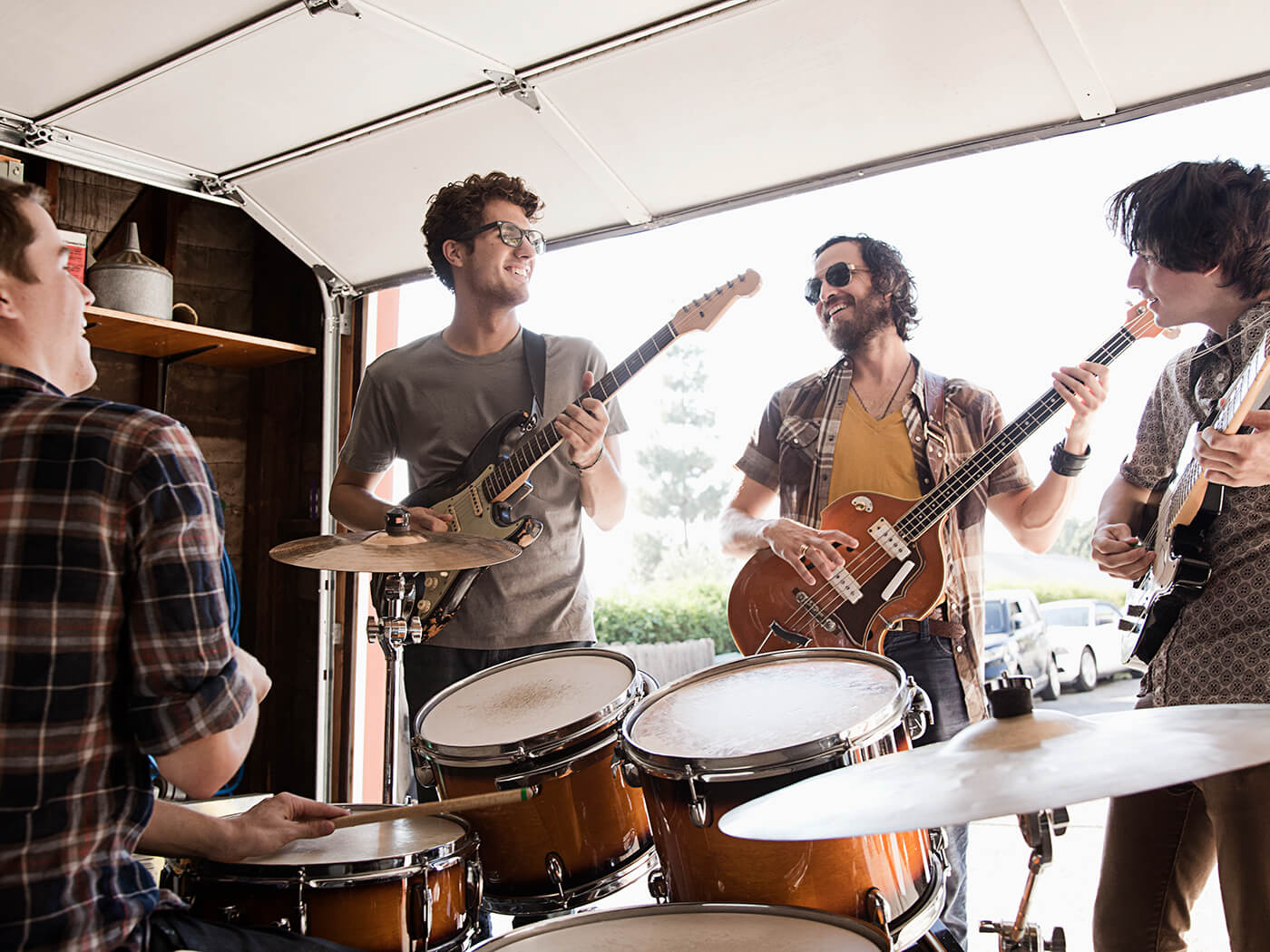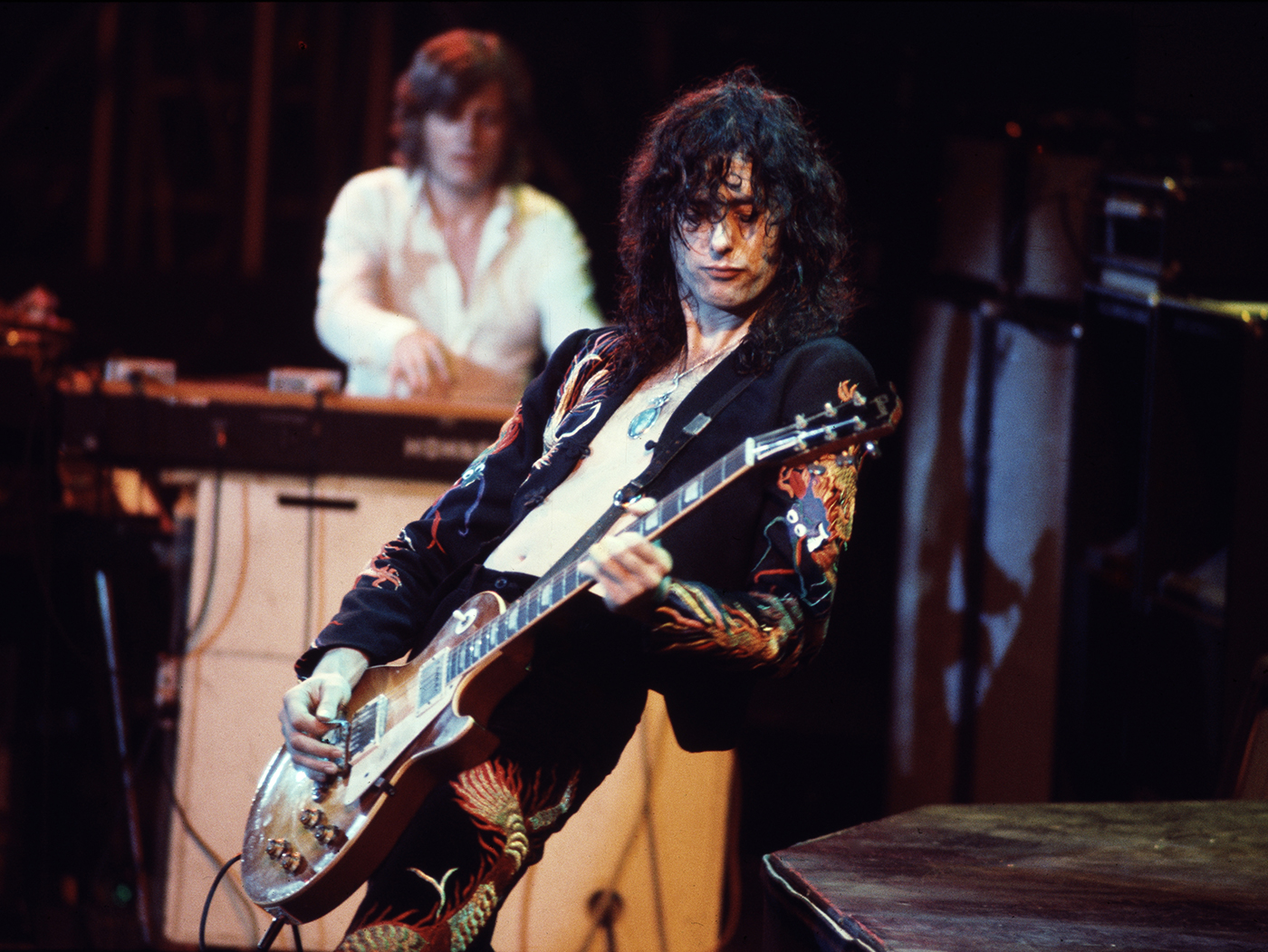Related Tags
Major Keys: The other things I learned because I learned guitar
The Aquabats! guitarist Ian Fowles on why there’s a lot more to playing guitar than just playing guitar.

Image: Greg Hinsdale / Getty Images
Playing guitar is a life skill. Looking back, it was a life skill that led me into a lot of other life skills. Sure, for some it can be a simple hobby, and there’s nothing wrong with that. For me however, I dove in headfirst and still really haven’t come up for air. I wanted to absorb everything I could about the guitar and learn every single thing connected to it. I started playing guitar around age 12 and it forced a shy, skinny nerd out of my shell and made me grow and connect with the larger world
Learning how to play guitar can, if you let it, change and shape your whole life, including setting you on a path to acquire many other valuable skills that are beneficial in other areas of your life, and here are just a few of my favourites…
Practical skills
It’s almost impossible to learn the guitar without developing some practical skills – even if it’s just changing a set of strings! But from there, many of us will begin adjusting necks and intonation, changing pickups, levelling frets… before you know it, you’re repairing, painting, maybe even building your own guitars. And let’s not forget that even if you never pick up a screwdriver, guitarists learn about decibels, ohms, watts, volts, phase, series, parallel, etc as a matter of course.
Some may find they gravitate so much to this that they can become touring technicians, set up their own repair shop, or establish their own gear company, but even if you’re just trying to fix something around the house (safety permitting of course), the core practical skills we learn when playing and maintaining our instruments can be really handy.
It’s not just about getting your hands dirty, however – chances are if you’re playing and writing songs, you’re going to want to record them, and that means you’re going to learn how to use recording software, and if you get the chance to get into a real studio, you’ll quickly start learning about mic placement, use of effects, mix, mastering… it’s a whole other skillset, but a hugely complimentary one to playing guitar.
Just look at how often you bump into a sound engineer or producer who’s also a guitar player, as well as famous examples who’ve gone so far down the rabbit hole they’ve ended up becoming producers and engineers themselves, like Johnny Marr or Jimmy Page.

Artistic skills
But it’s not just about the skills you learn while playing your instrument that being a guitar player develops. If you’re trying to promote your band and get noticed, you’ll quickly have to develop some artistic skills – whether it’s designing a flier, t-shirt or even an album cover. Obviously, your base level of skill going in will depend on how much time you need to spend on it!
The first time my high school band played out of town, we bought a Speedball silkscreen kit to make our own shirts. Perhaps they weren’t quite as professional as some others, but we sold some, and learned how to make our own merch in the process. It’s a well-travelled road, but one that has led many musicians to discover a passion for art and graphic design that’s blossomed into a career when they put their instrument down.
Business skills
Next, we have the skills that might not be as creative, but certainly come in handy in day to day life – business skills. These come in all shapes and sizes, in ways you may not even have noticed. For example, when you’re buying and selling gear, whether in person or via Reverb or eBay, you’re learning how to appraise the worth and quality of an item, haggle over prices, determine trade-in values, etc. After a few years playing seriously these skills have probably become second nature, but they’re important when it comes to dealing with money in general.
But that’s just part of the equation – if you’ve ever gigged regularly, and especially if you’ve been on tour, you’ll quickly develop if you don’t want to get entirely ripped off! Budgetings, negotiating contracts, settling-up at the end of the night, and paying crew, all come into play.
Planning is also another great skill you’ll learn on tour – the logistics of schedules, drive times, packing, map-reading skills (yes, even in the age of map apps), and merch drop shipments will all come in handy. Networking with other people is another great business skill, and one that is almost naturally built in to being in a band.

People skills
Finally perhaps one of the greatest and universal skills that someone can and should gain after learning how to play guitar is that of how to effectively communicate and interact with others. Growing these skills will unconsciously spill over into every area of life. This starts with your bandmates, but can extend to club owners and staff, booking agents, managers, label executives, producers, other bands, and so on. The bottom line is: don’t be a dick.
Treat everyone you come into contact with respectfully and with kindness and doors can open. Becoming part of a local music scene, or international community of touring professionals means word can get around and your choices of how you behave towards others can substantially affect your opportunities.
In truth, we’ve only scratched the surface of how playing guitar teaches you so much more than just the act of playing itself, but I hope I’ve demonstrated that learning, recording and gigging (whenever we’re able to do that again) can help you develop skills that can change your life for the better. How much you choose to embrace these other skills is up to you – at the end of the day, sometimes the only skill you really need is to be able to pick up the guitar and play.
Find out why Fowles thinks about the struggle between the guitarist and the sound engineer.
